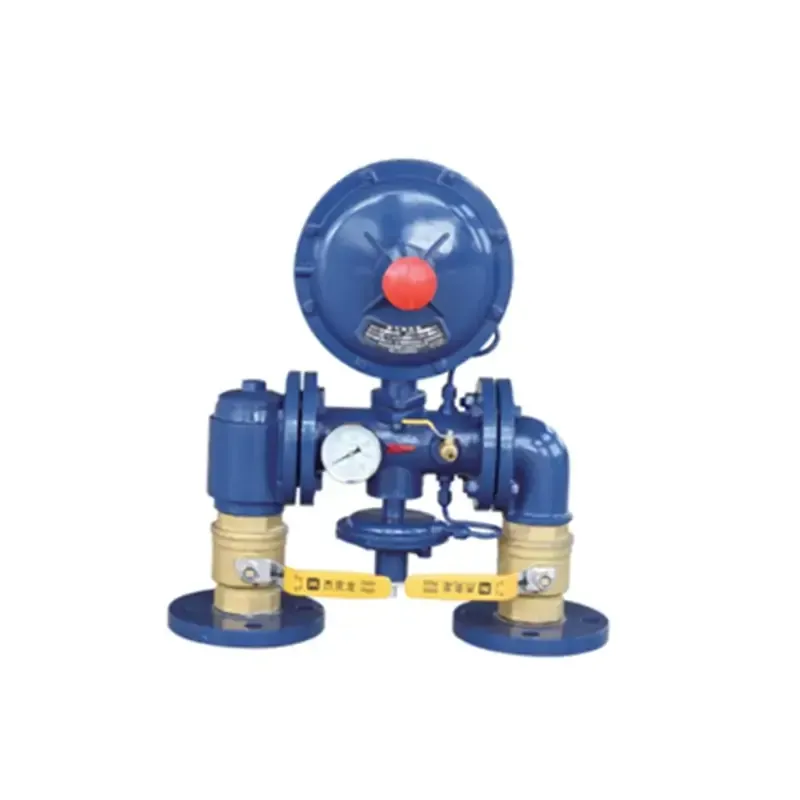
Nov . 11, 2024 12:35
Back to list
electric regulating valve
Understanding Electric Regulating Valves Functionality, Applications, and Benefits
Electric regulating valves are essential components in various industrial processes, providing precise control over fluid flow within a system. As industries continue to streamline operations and maximize efficiency, the role of these valves becomes increasingly significant. In this article, we will explore the functionality, applications, and benefits of electric regulating valves.
Functionality of Electric Regulating Valves
The primary function of an electric regulating valve is to manage the flow of fluids—be it liquids or gases. These valves perform this role through the use of an electric actuator, which adjusts the valve position based on signals received from a control system. This allows for real-time regulation of flow rates, pressures, and temperatures. The operation is typically based on a feedback loop, whereby the control system continuously monitors the process variable and sends commands to the valve actuator to maintain the desired set point.
There are several types of electric actuators used in regulating valves, including stepper motors, servo motors, and DC motors. Each type has its own advantages, depending on the complexity of the application and the level of precision required. Moreover, the integration of smart technology allows for enhanced control capabilities, enabling predictive maintenance and automated adjustments.
Applications of Electric Regulating Valves
Electric regulating valves find applications across a wide range of industries, including
1. Water Treatment In municipal and industrial water treatment plants, these valves are crucial for controlling the flow of chemicals and water through various treatment processes. They help in maintaining optimal conditions for coagulation, filtration, and disinfection.
2. HVAC Systems In heating, ventilation, and air conditioning (HVAC) systems, electric regulating valves help manage the flow of coolant and heated water, ensuring comfortable temperature regulation in buildings.
3. Food and Beverage Industry Precision in controlling flow rates is vital in processes such as pasteurization and mixing. Electric regulating valves ensure consistent and hygienic processing.
4. Chemical Processing The chemical industry often requires stringent control of flow rates and temperatures to maintain reaction conditions. Electric regulating valves provide the necessary accuracy and reliability in these sensitive environments.
electric regulating valve

5. Oil and Gas In this sector, valves regulate the flow of crude oil and natural gas through pipelines, ensuring safe and efficient transport of these resources.
Benefits of Electric Regulating Valves
The adoption of electric regulating valves offers numerous benefits
1. Precision Control These valves provide high levels of precision in flow regulation, crucial for processes that require exact measurements and conditions.
2. Energy Efficiency By optimizing flow rates, electric regulating valves can contribute to energy savings, decreasing overall operational costs.
3. Reduced Maintenance Many electric actuators have fewer moving parts than pneumatic or hydraulic counterparts, leading to lower maintenance requirements and increased longevity.
4. Integration with Automation The ability to integrate with automation systems allows for enhanced control, monitoring, and data analysis, making industrial processes more efficient and reliable.
5. Environmental Impact By improving process efficiency and reducing waste, electric regulating valves can contribute to more sustainable operations and decreased environmental footprints.
Conclusion
Electric regulating valves are vital components that enhance the efficiency and effectiveness of modern industrial processes. Their ability to provide precise control over fluid flow makes them indispensable across various sectors, from water treatment to oil and gas. As industries continue to evolve and embrace automation, the significance of electric regulating valves will only increase. Their benefits, including precision control, energy efficiency, and reduced maintenance, underscore their importance in achieving optimal operations. As we move towards a more technologically advanced future, the role of these valves will remain critical in ensuring sustainable and efficient industrial practices.
Latest news
-
Safety Valve Spring-Loaded Design Overpressure ProtectionNewsJul.25,2025
-
Precision Voltage Regulator AC5 Accuracy Grade PerformanceNewsJul.25,2025
-
Natural Gas Pressure Regulating Skid Industrial Pipeline ApplicationsNewsJul.25,2025
-
Natural Gas Filter Stainless Steel Mesh Element DesignNewsJul.25,2025
-
Gas Pressure Regulator Valve Direct-Acting Spring-Loaded DesignNewsJul.25,2025
-
Decompression Equipment Multi-Stage Heat Exchange System DesignNewsJul.25,2025

